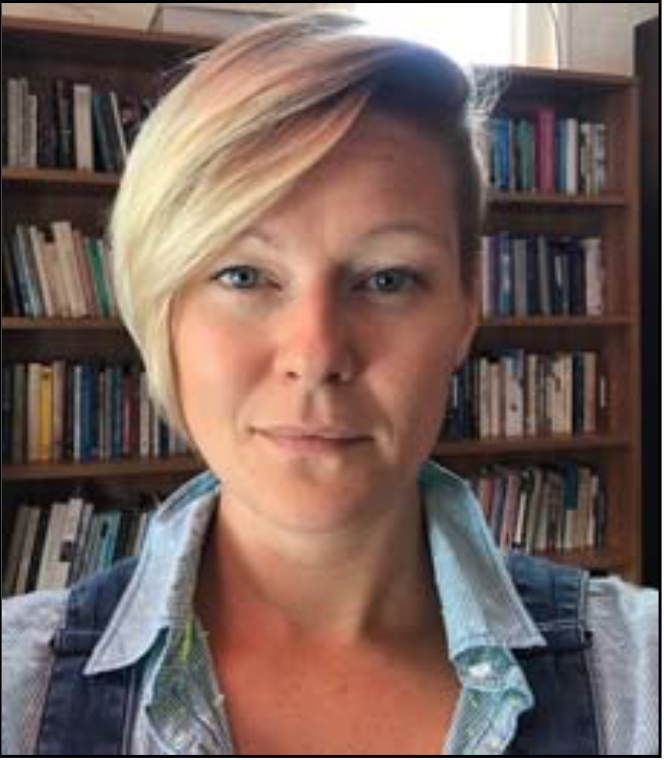
The Center congratulates Dr. Mallory Szymanski on her new position as an Assistant Professor of U.S. History in the Division of Human Studies at Alfred University in Rochester, New York.
Dr. Szymanski received her B.A. in English and History from UF in 2006, and then received her M.A. in Women’s Stud- ies from the Center in 2008. In 2017, she earned a Ph.D. in History from UF. Dr. Szymanski’s dissertation, “Sexual Dysfunction as the ‘National Disease of America:’ Neurasthenia and the Medicalization of Men’s Sexual and Emotional Health in the Gilded Age,” explores how a popular late-nineteenth century medical diagnosis known as neurasthenia, or nervousness, camouflaged a national conversation about men’s sexual health in the U.S.
Dr. Szymanski has taught numerous classes for the Center since 2012 and many students joined the Women’s Studies major through her inspiring teaching. At Alfred University, she says, “I want to offer classes that appeal to two audiences: the already-committed history major and the student who believes history is irrelevant to their lives. This is a tough balance to strike, but Alfred University has a diverse student body, so I’m excited to see what they bring to the table.”
When asked about what she learned from the job search process, Dr. Szymanski highlighted that it is important not to dwell on rejections or take rejections personally. On this, she says, “Each search committee has its own set of ideas about who they want to hire, and these are often unstated and undetectable. An applicant can control the quality of their work and application materials, but whether these will be deemed a good fit by the search committee—well, that’s out of the applicant’s hands. It was so important for me to keep these things in mind as I put myself out there to be evaluated. I applied to over 50 positions, and got plenty more rejections than invitations to interview, so I learned early on to let the outcomes go.”
Dr. Szymanski also learned that camaraderie with other scholars on the job market is important. She says, “It helped so much to have a coterie of people who were at similar career stages with whom I could share challenges and triumphs, review application materials, and practice interview techniques… I took a lot of comfort in hearing other people’s stories about interviewing, and I learned a lot about what to expect from those who have recently been through the process.”
Dr. Szymanski believes that earning her M.A. in Women’s Studies and teaching for the Center for six years has given her an “interdisciplinary edge” that opened doors for her in the job search. This led her to her position at Alfred University, where she will blend History and Women’s Studies together in the courses she teaches. Furthermore, Dr. Szymanski says that her time at the Center has trained her to “think and teach intersectionally, and to consider my own subjectivity and position of power as a teacher.”
When asked what advice she would offer to other feminist scholars on the job market, Dr. Szymanski emphasized that because “there are lots of good ways to pursue an academic career,” it’s important for a feminist scholar to determine what job search strategy will work best for them. Dr. Szymanski also offered advice for graduate stu- dents in Women’s Studies: “cultivate relationships with faculty who give you critical and comprehensive feedback on your writing. And as soon as possi- ble, come to see that kind of feedback as an act of generosity and care, not of derision or condescension.”
The Center is sad to see Dr. Szymanski go, but we are very proud of her accomplishments and wish her the best of luck at Alfred University.